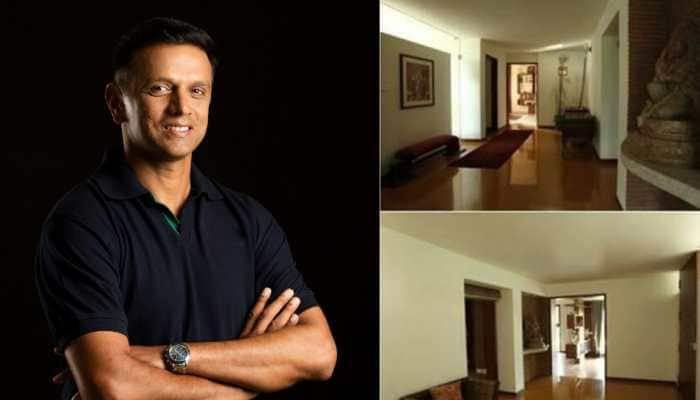Swiss say 'no thanks' to basic income for all
Final results in the referendum showed 76.9 percent of voters opposed the initiative to provide an unconditional, basic income (UBI) to each Swiss national, along with foreigners who have been legal residents for at least five years.
Trending Photos
)
Geneva: The Swiss on Sunday flatly rejected a radical proposal to provide the entire population with a basic income.
Final results in the referendum showed 76.9 percent of voters opposed the initiative to provide an unconditional, basic income (UBI) to each Swiss national, along with foreigners who have been legal residents for at least five years.
Supporters had argued that such an income would help fight poverty and inequality in a world where good jobs with steady salaries are increasingly hard to come by.
The group behind the initiative had suggested paying 2,500 Swiss francs ($2,500/2,300 euros) a month to each adult and 625 francs for each child.
Such a sum, however, would hardly cover basic living costs in Switzerland, which is one of the world`s priciest nations where the mean income is above 6,000 francs a month.
The idea, which stirred up debate both in Switzerland and abroad, was embraced in a few counties in the cantons of Jura and Vaud, while several neighbourhoods of Geneva and Zurich voted in favour.
But overall, the response from the 46 percent of eligible voters who cast their ballots was a resounding "no", in line with the recommendation from the government and nearly all political parties.
The scheme to dish out an income to people whether they work or not was controversial from the start in Switzerland --a country where craftmanship and work ethic are highly valued.Andreas Ladner, a political scientist at Lausanne University, told RTS the Swiss were "realistic" in their assessment of the UBI plan.
Accepting that people can "be paid without having to work would have been a very big step" for the industrious Swiss, he said.
Critics condemned the initiative as "a Marxist dream", warning of sky-high costs and people quitting their jobs in droves, causing economic chaos.
Authorities have estimated an additional 25 billion francs would be needed annually to cover the costs, requiring deep spending cuts or steep tax hikes.
That argument likely hit home with the Swiss who have previously turned up their nose at initiatives that would have ushered in a minimum wage and increased paid holidays from a minimum four to six weeks, fearing they would hurt competitiveness.
But supporters of the UBI initiative were not cowed by the resounding defeat, insisting that their main objective had been to get people talking about the idea.
"We are very happy," Ralph Kundig, one of the lead campaigners, told the ATS news agency.
Supporters threw a party in Lausanne to celebrate the 23 percent of votes they had garnered.
"One out of five people voted for the unconditional basic income, so that is a success in itself," Sergio Rossi, an economics professor and backer of the initiative, told ATS.The idea of a basic income has been bouncing around in more radical circles for centuries, but it has recently entered mainstream thinking.
Projects to introduce some variation of the UBI, albeit at a lower level than the Swiss proposal, are underway in a range of countries, including in Finland and the Dutch city of Utrecht.
Sunday`s referendum came after reformers mustered more than the 100,000 signatures required to hold a popular vote, a feature of the Swiss system of direct democracy.
While the UBI initiative was clobbered, several other contentious issues put to the vote Sunday sailed through.
A full 66.8 percent of voters and all 26 cantons embraced a government push to speed up the country`s asylum process, despite harsh opposition from the populist rightwing Swiss People`s Party.
The aim is for most cases to be handled within 140 days or less, compared to an average of around 400 days at the moment.
And 62.4 percent of voters and all but three half-cantons supported a call to allow genetic testing of embryos before they are inserted in the uterus in cases of in vitro fertilisation where either parent carries a serious hereditary disease.
No screening would be permitted for elements like gender, hair and eye colours, but that has not stopped opponents from dubbing the initiative the "eugenics law".
Stay informed on all the latest news, real-time breaking news updates, and follow all the important headlines in india news and world News on Zee News.
Live Tv







)
)
)
)
)
)
)
)
)
)
